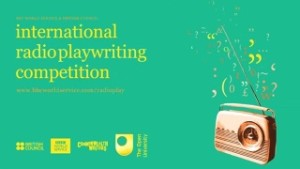This article in The Guardian asks the question: Should Radio Drama Be More Realistic?
Fiona Morrell as the question. Here’s her argument. What do you think?
I’ve recently been working with the playwright Nell Dunn, directing her latest play, Home Death, at the Finborough theatre. The play examines the palliative care system through the eyes of people who have experienced someone dying at home. Early in rehearsals Nell gave us some wonderful advice: “When you turn on the radio,” she said, “you can hear – usually within a minute or two – whether you are listening to a radio play, or listening to a real person recounting their experience. I want the play to sound like the latter.” The last few weeks have found me turning the radio on and off, trying to understand the essence of what makes someone sound spontaneous, and how to bring my findings into the rehearsal process.
Verbatim theatre has become an incredibly successful theatrical medium during the last few years, from the political transcript work pioneered by the Tricycle theatre to the detailed, rigorous writing of Alecky Blythe, whose wonderful, compassionate London Road is currently selling out at the National. In one of Blythe’s earlier works, The Girlfriend Experience at the Royal Court, she explored verbatim by asking actors to listen to recordings of the material as they were performing, ensuring that every “um” and “ahh” was faithfully reproduced in front of the audience. There’s something compelling about working on material drawn from real-life characters – as a theatremaker you’re trying to get to the heart of why people make certain decisions and yet, of course, all of us are less than open. Everyone chooses what to reveal, and what not to; it’s in these ellipses that the true drama often lies.
But back to that moment of truth, when you turn on the radio. From a dramatic perspective, it’s down to technical realities. A “real” retelling will usually include more stumbles, more hesitations, maybe more pauses. Often, information will not be chronological; there will be sidetracks and diversions, inconsequential details and an avoidance of certain painful subjects. Not only is this sense of absolute reality tricky to write or notate, but the twists and turns often play unhelpfully against the narrative needed to ignite a conventional play.
A couple of years ago I heard, on Radio 4, a mother tell the story of her son who had died of malaria just after his gap year because he had given away his supply of pills to children whom he felt had a greater need. Her grief and fury at the situation boiled under her need to warn anyone who might be listening of the dangers of the disease, to try and prevent another mother going through her own experience. The interview was electrifying. Was this drama? It certainly had a beginning, middle and end, conjured up a vivid image of a place I’d never been and provoked a violent emotional reaction. Would an actor have been able to take the transcript of her interview and deliver it with the same passion? Perhaps yes. Would a writer be able to write it? Again, perhaps yes, but most likely they would edit it to something more coherent and direct – and lose something in the process.
Of course every play is dependent upon the quality of writing, directing and acting, and perhaps the mark of a good artistic team is their ability to capture that sense of spontaneity and freshness; and, for those on stage, the ability to recapture it night after night. Surely radio drama should be able to find that kind of freshness more easily – and yet, over the last month, I have been struck by how old-fashioned and flatly staged many of the plays we hear on the radio sound. Is it because the actors are reading from scripts? Is there too little time for character research? Or does it come down to the quality of writing or choice of script? Or maybe, now that I’ve become so attuned to the rhythms and cadences of real-life speech, the polished confidence of the imaginary feels somehow dissatisfying.



 Long time listeners of the Sonic Society will know that I’m a fan of many writers, but specific writers have always driven me to be a better writer- Rod Serling, Robert E. Howard, J. Michael Straczynski, Alan Moore, Neil Gaiman, David Milch, Chuck Dixon, Steven Moffat, Alan Dean Foster, Dash Hammett as just some that come to mind. I have to give props to The Truth podcast. Jonathan Mitchell keeps producing what I adore- anthology tales that are full audio dramas. In
Long time listeners of the Sonic Society will know that I’m a fan of many writers, but specific writers have always driven me to be a better writer- Rod Serling, Robert E. Howard, J. Michael Straczynski, Alan Moore, Neil Gaiman, David Milch, Chuck Dixon, Steven Moffat, Alan Dean Foster, Dash Hammett as just some that come to mind. I have to give props to The Truth podcast. Jonathan Mitchell keeps producing what I adore- anthology tales that are full audio dramas. In  RTÉ
RTÉ Erik Hermansen from
Erik Hermansen from  Mira Burt-Wintonick who was a producer for ten years on the popular
Mira Burt-Wintonick who was a producer for ten years on the popular 